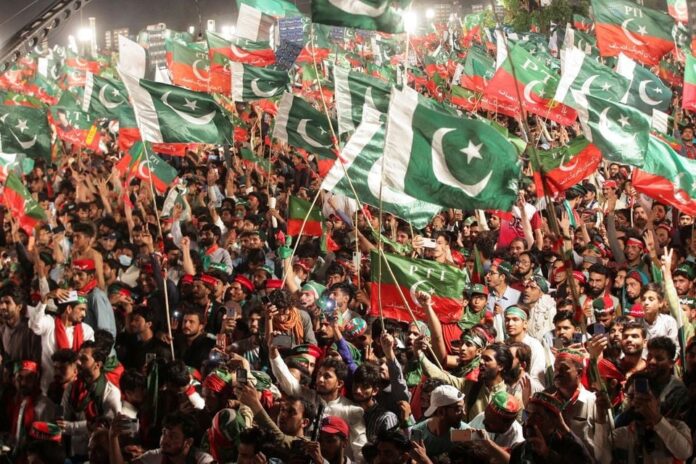 Abdul Ghafoor Sarohi
Abdul Ghafoor Sarohi
Islamabad, Pakistan’s capital, is currently the epicenter of intense political unrest, widespread protests, and violent clashes. The arrest of former Prime Minister Imran Khan has exacerbated tensions, disrupting the fragile peace in the city and raising significant concerns at both national and international levels.
Following Imran Khan’s arrest, thousands of Pakistan Tehreek-e-Insaf (PTI) supporters took to the streets in Islamabad and major cities across the country. Key roads, government buildings, and sensitive installations were blocked as demonstrators staged sit-ins to demand Khan’s release.
The protests quickly turned violent as clashes erupted between demonstrators and security forces. Several incidents of arson were reported, with government properties and vehicles being set ablaze. Law enforcement responded with tear gas, water cannons, rubber bullets, and, in some instances, live ammunition to disperse the crowds.
The violent clashes have resulted in several fatalities and hundreds of injuries, overwhelming local hospitals. The growing unrest has instilled fear among the citizens, with many choosing to stay indoors for their safety. Schools, offices, and businesses have been shut down, further disrupting daily life in the capital.
The arrest of Imran Khan has heightened tensions between the ruling government and PTI. Government officials maintain that the law applies equally to all citizens, emphasizing that Khan’s arrest is a legal matter. In contrast, PTI leadership has termed the arrest a politically motivated act of revenge and an attack on democratic principles.
This political deadlock has not only deepened the divide within Pakistan but has also severely impacted the economy and social fabric. Businesses remain shuttered, transportation services are halted, and essential institutions, including hospitals, are struggling to operate.
The ongoing political crisis in Pakistan has drawn the attention of the global community. The Biden administration, Amnesty International, and other international organizations have expressed serious concerns about the country’s escalating instability. Both the Biden and Trump administrations have called for Khan’s immediate release, urging Pakistan to uphold human rights and the rule of law.
The current turmoil underscores Pakistan’s urgent need for a unified national strategy to address the political and social unrest. It is imperative for the government and opposition to engage in constructive dialogue to de-escalate tensions and prioritize the nation’s stability over political rivalries.
Islamabad is navigating one of the most critical periods in its history. The protests, violence, and political stalemate have not only jeopardized the country’s internal peace but also its international standing. The onus now lies on all stakeholders to rise above partisan interests and work collectively for the greater good of Pakistan. Failure to do so risks pushing the nation further into chaos and uncertainty.



